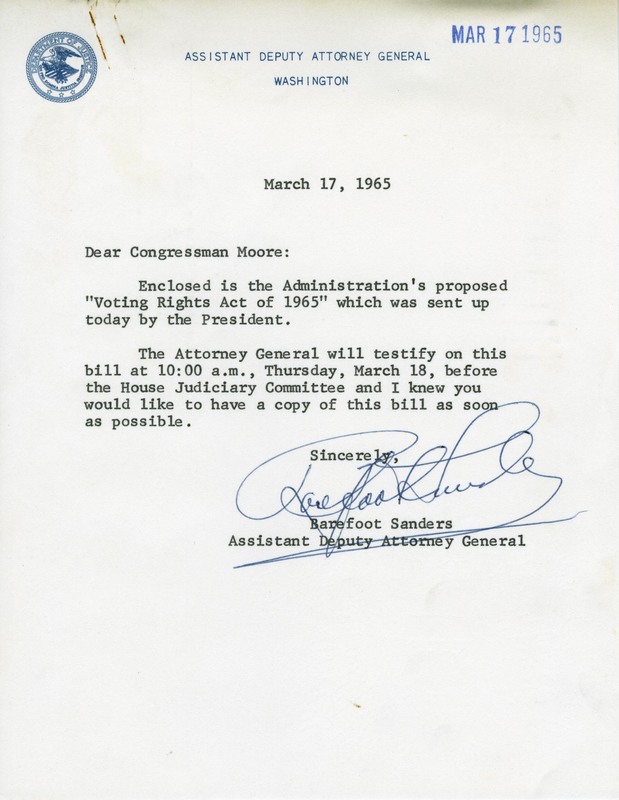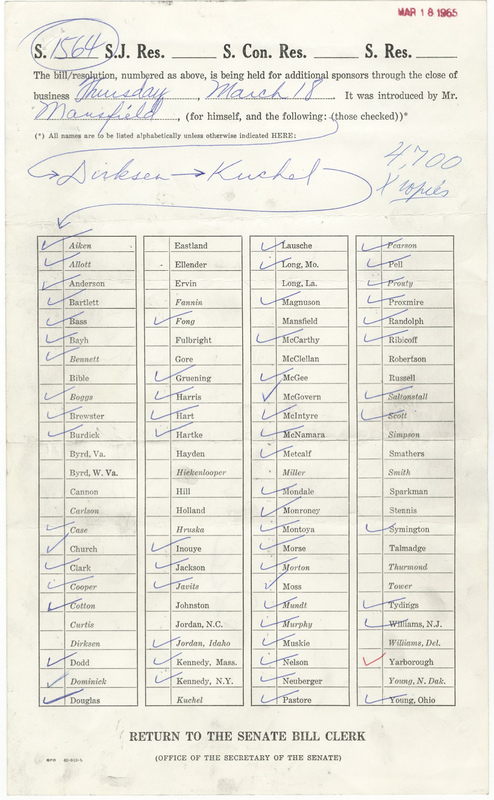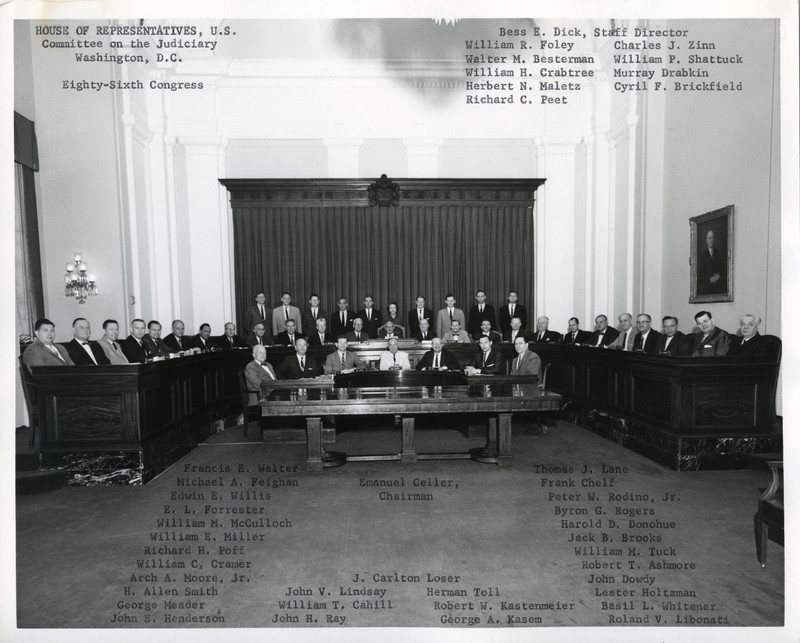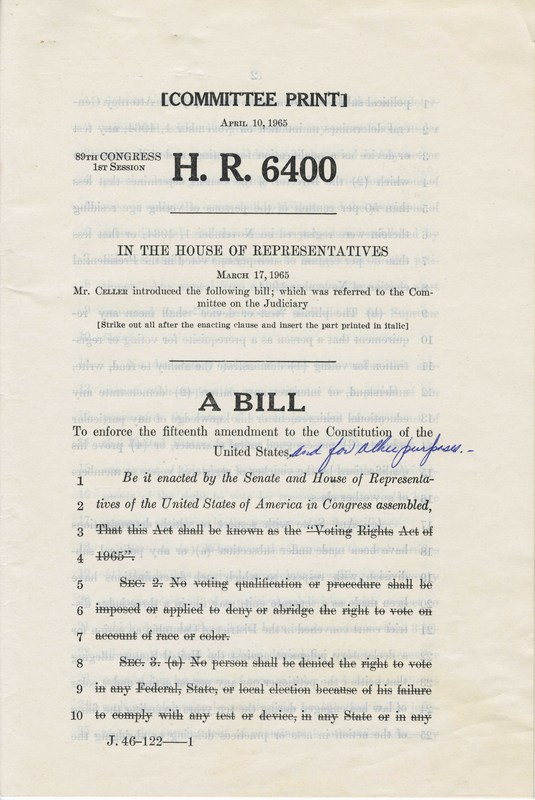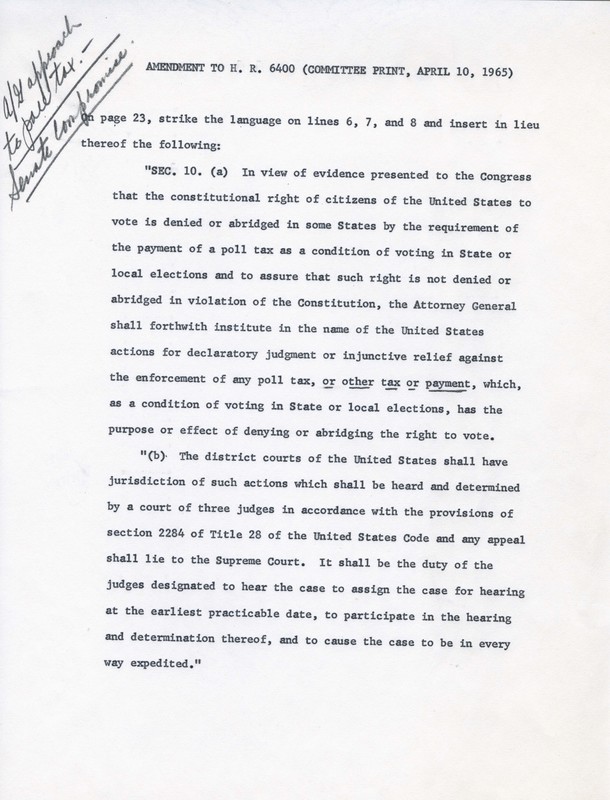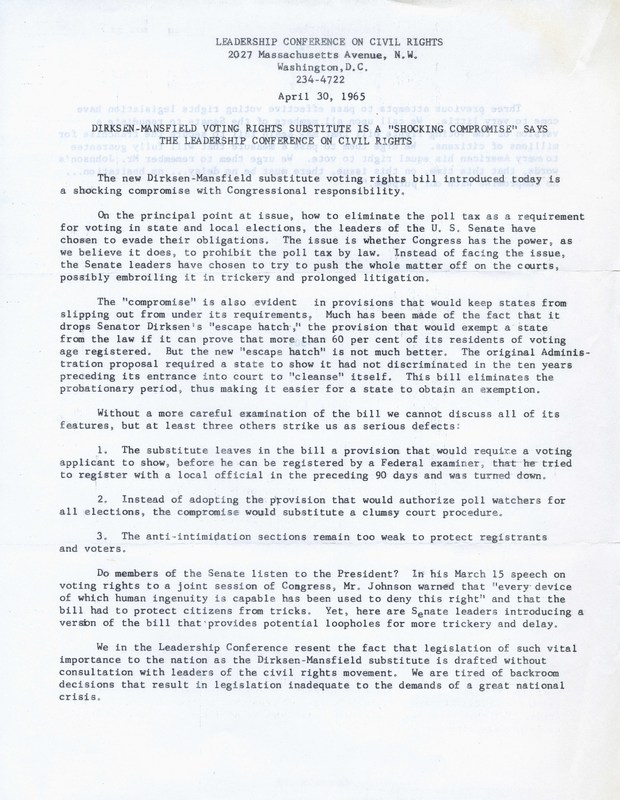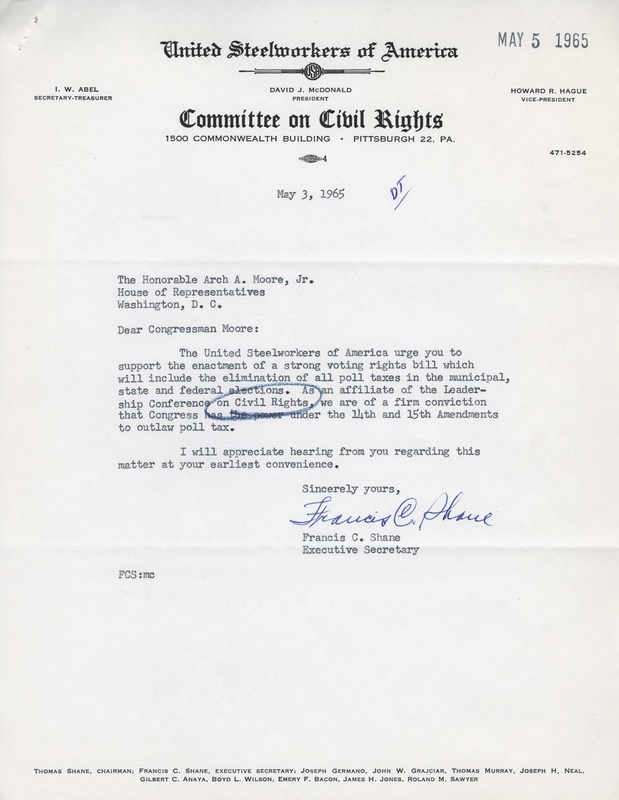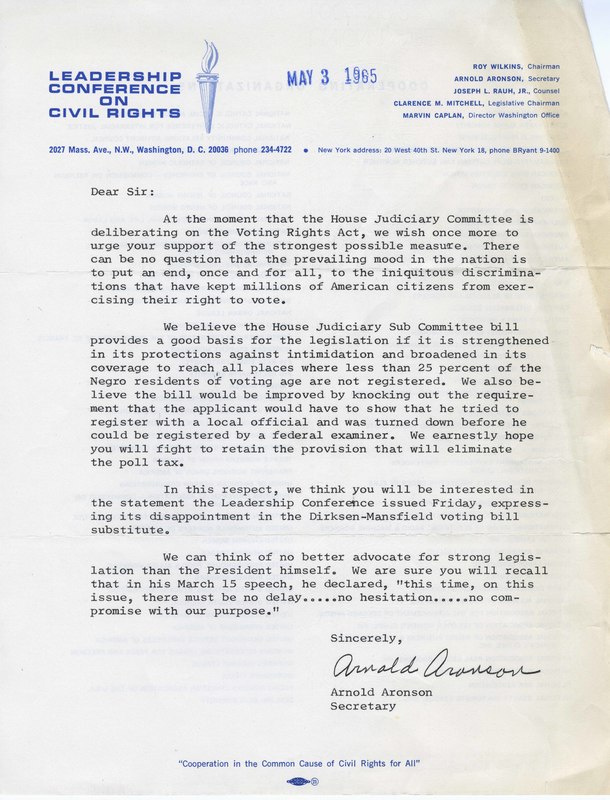VRA in Congress
Traditionally, most powers to register voters and protect the right to vote have fallen to state and local officials. Following the March 1965 attack on civil rights demonstrators in Selma, Alabama, Congress needed to decide whether the Federal Government should shift this balance of power.
On March 17, the Johnson Administration sent a voting rights bill to the Senate and the House of Representatives that broadly aimed to eliminate restrictions that disenfranchised qualified voters, particularly in areas where there was a record of previous discrimination.
The proposed bill (S.1564 in the Senate and H.R.6400 in the House) had strong bipartisan support, but Congress spent several months debating various aspects of the legislation, including poll taxes and automatic triggers.
Poll taxes, taxes levied by many states as a prerequisite to voter registration, were banned in federal elections with the 1964 ratification of the Twenty-fourth Amendment. However, the administration and many senators believed a federal ban on poll taxes in state and local elections would be ruled unconstitutional.
Another aspect of the bill automatically “triggered” certain actions, such as outlawing literacy tests and requiring states or counties where discriminatory practices were in place to seek federal “preclearance” before establishing new voting laws. Some argued that automatic triggers were arbitrary and discriminatory to states.
